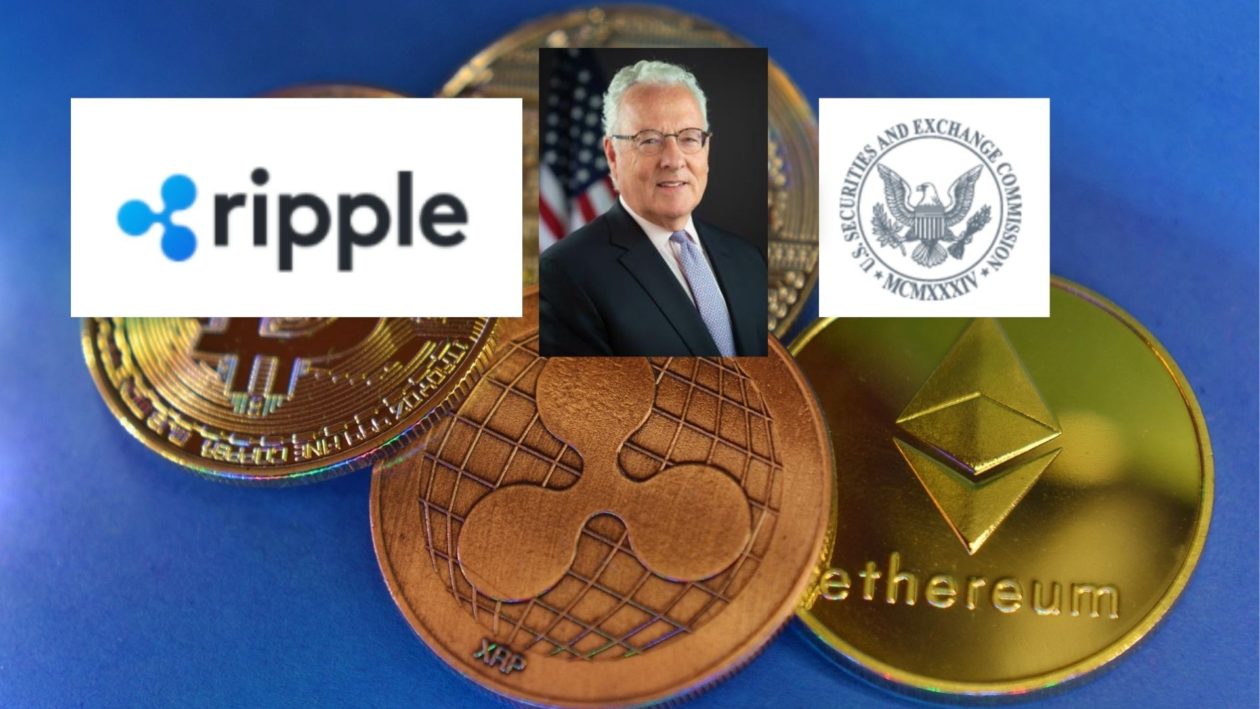Ripple Labs is trying anew to force testimony from former U.S. Securities and Exchange Commission director William Hinman, asking a judge to deny the the SEC’s request that he be excused from testifying in the “incredibly high-stakes, high-value” SEC v. Ripple lawsuit.
In a letter to U.S. Magistrate Judge Sarah Netburn, who is overseeing discovery, Ripple’s defense attorneys wrote that the SEC failed to meet the “heavy burden” needed to stop Hinman’s deposition and that Hinman would provide “a critical window into the agency’s communications with important third parties about the regulatory status of cryptocurrencies.”
On June 24, the SEC filed a letter seeking to quash Ripple’s request to have Hinman, who was director of the SEC’s division of corporation finance from 2017 to 2020, from testifying at a deposition.
See related article: SEC seeks to stop Ripple from calling ex-SEC director for XRP testimony
Ripple: Hinman has first-hand knowledge
In its letter, the SEC argued that Hinman had been one of the SEC’s highest-ranking officials and Ripple could not establish the “exceptional circumstances” required to justify his deposition. But Ripple has disputed the SEC’s assertion that Hinman was a high-ranking officer and that calling him to testify would be “a significant deterrent to qualified candidates for public service.”
“The SEC erroneously contends that, when he was its Director of Corporate Finance, Mr. Hinman was a high-ranking official protected from deposition,” Ripple’s attorneys wrote. “Mr. Hinman never was a ‘high-ranking government official,’… entitled to special discovery protection; and because, as a former employee, he certainly is not one now.”
Hinman’s role was less senior than the SEC’s chairman and commissioners and on par with the agency’s five other division directors and other agency officials such as the SEC’s general counsel, the defense attorneys added.
Ripple’s attorneys also disagreed with the SEC’s claim that Hinman was clueless about the facts underlying the litigation, arguing that Hinman had “unique first-hand knowledge about the SEC’s communications with third parties and about the agency’s adoption or approval of his well-publicized speech in 2018 about the regulatory treatment of cryptocurrencies.”
Hinman had, in his 2018 “Digital Asset Transactions: When Howey Met Gary (Plastic)” speech at the Yahoo Finance All Markets Summit: Crypto event, said Bitcoin and Ether were not securities. “Multiple currency exchanges decided to list XRP after the speech, suggesting it gave comfort that offers and sales of XRP did not run afoul of the securities laws,” Ripple’s defense attorneys wrote.
Ripple’s defense attorneys are also eyeing Hinman’s communications with the Ethereum Foundation, ConsenSys and other third parties, calling them “relevant and discoverable.”
Why Ripple thinks the SEC’s internal communications and Hinman’s 2018 speech matter
Last December, the SEC filed a lawsuit against Ripple alleging that its sale of XRP was an unregistered securities offering worth over US$1.38 billion. The SEC also named Ripple’s executive chairman Chris Larsen and CEO Brad Garlinghouse as co-defendants for allegedly aiding and abetting Ripple’s violations. At the heart of the lawsuit is whether transactions involving XRP constitute “investment contracts” and therefore securities subject to registration under Section 5 of the Securities Act of 1933.
The SEC’s internal communications on Bitcoin, Ethereum and XRP and Hinman’s speech have been heated areas of contention between the SEC and Ripple as Ripple seeks to bolster its fair notice defense that the SEC did not provide the company and market with fair notice that XRP transactions violated the law.
Was Hinman’s speech reflective of the SEC’s policy?
With Hinman now trying to distance himself and the SEC from his 2018 remarks, Ripple’s defense attorneys argued that Hinman’s declaration filed in support of the SEC’s motion to quash the deposition subpoena “suggest through their precise tailoring that Mr. Hinman indeed has personal knowledge about other issues — such as the SEC’s discussions with market participants about Bitcoin and Ether — that this Court has previously ruled are relevant and the proper subject of discovery.”
Communications related to Hinman’s speech cannot be privileged if the speech did not reflect government policy, Ripple’s defense attorneys argued. “If, on the other hand, the speech did express agency policy, then the SEC might have a better argument for shielding internal deliberations about it — but at the cost of acknowledging that the agency’s current litigation position that XRP is a security is inconsistent with prior agency pronouncements.”
“[Hinman’s] testimony is likely to yield important facts shedding light on whether and to what extent the SEC authorized or approved it as a statement to the public about the agency’s current thinking on a complex, highly scrutinized regulatory topic,” the defense attorneys wrote.
Ripple’s attorneys are asking the court to allow Hinman’s deposition to proceed and the SEC’s attorneys to object on a question-by-question basis if a question sought privileged information. “That familiar procedure provides full protection for any legitimate interest the SEC might have in avoiding scrutiny of Mr. Hinman’s public and private communications about the market’s understanding of the regulatory treatment of cryptocurrencies — an issue at the heart of this case,” Ripple attorneys wrote.





